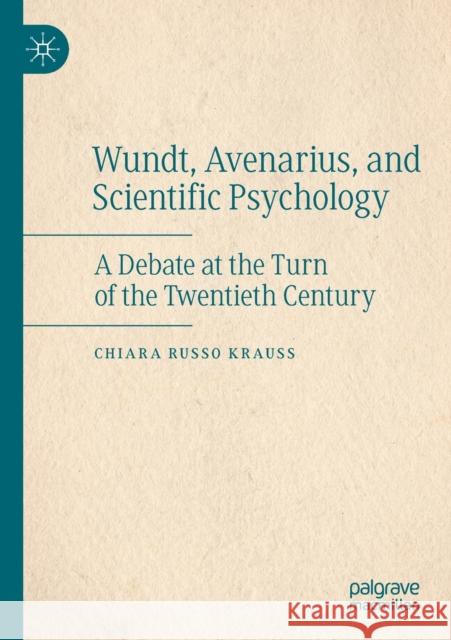Wundt, Avenarius, and Scientific Psychology: A Debate at the Turn of the Twentieth Century » książka
topmenu
Wundt, Avenarius, and Scientific Psychology: A Debate at the Turn of the Twentieth Century
ISBN-13: 9783030126391 / Angielski / Miękka / 2020 / 151 str.
Wundt, Avenarius, and Scientific Psychology: A Debate at the Turn of the Twentieth Century
ISBN-13: 9783030126391 / Angielski / Miękka / 2020 / 151 str.
cena 308,41 zł
(netto: 293,72 VAT: 5%)
Najniższa cena z 30 dni: 306,26 zł
(netto: 293,72 VAT: 5%)
Najniższa cena z 30 dni: 306,26 zł
Termin realizacji zamówienia:
ok. 20 dni roboczych.
ok. 20 dni roboczych.
Darmowa dostawa!
Kategorie:
Kategorie BISAC:
Wydawca:
Palgrave MacMillan
Język:
Angielski
ISBN-13:
9783030126391
Rok wydania:
2020
Wydanie:
2019
Ilość stron:
151
Waga:
0.23 kg
Wymiary:
21.01 x 14.81 x 0.99
Oprawa:
Miękka
Wolumenów:
01
Dodatkowe informacje:
Wydanie ilustrowane











